To help Aboriginal and Torres Strait Islander corporations understand what Data Sovereignty means and why it matters...
Recognise your internal culture

In this section, we explain what internal culture is and its significance. We discuss how your group’s internal culture influences your governance. We also explain governance values, and their connection to your internal culture. This topic matches ‘Recognise your internal culture’ in our Governance Self-assessment Tool. We recommend that you do activities 4.1 and 4.2 in the tool after reading each subtopic.
While reading this topic, think about the following questions and how they relate to your organisation, community or nation:
- How would you describe the internal culture of your group to others?
- Does your internal culture make it easier to get things done?
- What values are most important to your group?
- Do your values reflect in your work? If so, how?
Your internal culture
A strong internal culture is integral to effective governance. Your internal culture is your shared values and beliefs. These affect how people work together in your organisation, community or nation.1Australian Institute of Company Directors 2019, Principle 10: Culture, accessed June 2023.
This culture is expressed through people’s behaviours, attitudes and communication styles. These develop over time within your group. Your internal culture is like the ‘personality’ of your group.
A group’s internal culture is different to the culture of Aboriginal and Torres Strait Islander people. While both encompass values and beliefs that guide people’s way of life, your internal culture is specific to your group’s work environment. Nonetheless, the cultural values of Aboriginal and Torres Strait Islander people also play a central role. For example, the values of family, reciprocity and respect.
A strong internal culture makes people feel valued and positive about the work they do. This can lead to:
- enhanced trust and cooperation
- increased support
- fewer disputes and conflicts
- efficient decision-making.2SHRM, Understanding and Developing Organizational Culture, accessed June 2023 [link]
A strong internal culture can improve your group’s ability to get things done. It can strengthen your resilience during times of transition and change3McKinsey & Company 2022, Raising the resilience of your organization, accessed June 2023 [link]. Resilience is a valuable quality for Aboriginal and Torres Strait Islander groups. Especially when working to build or improve your governance.
It’s important that you reflect on your current internal culture. This helps you to consider what will support the success of your governance.
Yarnteen is a not-for-profit organisation that supports Aboriginal and Torres Strait Islander peoples with training and employment opportunities. Yarnteen have worked to build a strong internal culture between their board directors, managers and staff. Staff describe the organisation as ‘one big family’ and are committed to the organisation. Board directors:
- are open with communication
- have shared values
- foster care
- work effectively with their senior management.
Creating this strong internal culture has meant a low staff turnover and a sense of stability.
In 2006, Yarnteen’s board directors took part in a self-evaluation tool. This assessed their views on the board’s effectiveness. The results highlight the strength of Yarnteen’s organisational culture. Board directors:
- work well together to plan and steer a future direction
- have trust in the executive director’s abilities and recognise their value
- understand their roles
- respect the roles and responsibilities of senior management by letting them get on with their job
- make an effort to reinforce core organisational values
- recognise the culture of teamwork and individual commitment among staff
- deal with internal differences of opinions tactfully.2Diane Smith, Evaluating governance effectiveness: a facilitated process with the Board of Yarnteen Corporation (Canberra: Case Study Report No. 2, Indigenous Community Governance Project, CAEPR, ANU 2006)
Do activity 4.1 to reflect on your internal culture.
The goal is to understand what values and behaviors make your group strong and identify areas where you could work better together.
Your values
Values are the principles or qualities that your group considers important. They define standards of behaviour and guide decision-making. Defining and reinforcing your group’s values is a straightforward way to shape your internal culture.
To foster a strong internal culture, your group must have clearly defined values that your people can identify with.4Australian Institute of Company Directors 2019, Principle 10: Culture, accessed June 2023 [link] For example, respect is a value that implies that everyone should have regard for the feelings and perspectives of others. Respect helps create an internal culture where people feel appreciated and confident to be themselves.
Once you have identified your group’s values, you need to embed them in your governance. This means everyone needs to understand what’s expected. One way to do this is by documenting your values and making them visible to everyone in your group.
Your leaders should be able to explain what these values mean and express them through their actions. You can also incorporate your values into your governance documents and policies. Then you can refer to them when making and implementing decisions.
Kanyirninpa Jukurrpa (KJ) is a Martu organisation established in 2005 to work with Martu to build strong, sustainable communities. They do this through a range of cultural, environmental, and social initiatives. The Martu are the traditional owners of a large part of central Western Australia, extending from the Great Sandy Desert in the north to around Wiluna in the south. Having worked with Martu for over a decade, KJ recognises the importance of combining skills and knowledge of staff and local communities to achieve the best results.
“Working with old people in the front. KJ is just the driver but oldies are leading the way”– Martu elder, ‘Think Martu. Think Differently. Act Differently. How KJ works with Martu,’ 2021.3Social Ventures Australia Consulting, Think Martu. Think Differently. Act Differently – Evaluation of KJ Against Martu Outcomes, (Social Ventures Australia Consulting, 2021), 16. [link]
In 2021, KJ’s organisational values were reviewed by a small group of Martu and KJ staff. Together, they discussed and agreed on a set of words that reflected their shared vision on how KJ should run. The following eight organisational values represent how Martu and non-Indigenous individuals should work together. They are:
Walyja – Family: People working together and identifying personally with this work as one would with family.
Ngaparrji-Ngaparrji – Respect: Martu and non-Martu can work strongly together if they respect each other and act with respect towards each other.
Minyirrpa – Being serious: Taking matters seriously, ‘not playing games’ and being ‘real about it’.
Yiltanyju – Honesty: Talking to and dealing straight with each other, Government and others.
Kujungka – Partnership: Martu and non-Martu working together as equals, with complementary skills and knowledge.
Warrkamu – Participation: By building a culture of participation in Martu communities, individual Martu will be supported and strengthened.
Yiwarra – Building: Creating the future that Martu people want, that strengthens Martu society and engages confidently and effectively with mainstream society.
Nyakuma nintirri – Reflection: Combining action with reflection, to learn as we go.
Each value begins with a word in Martu language, as chosen by members of the Martu Leadership Program. While the Martu words are not direct translations of the English words, they embody the essence of each value as it relates to Martu concepts. KJ’s recognised commitment to these 8 values translates into meaningful actions and behaviours, including respecting Elders, encouraging participation, and working alongside Martu as equals.4Social Ventures Australia Consulting, Think Martu. Think Differently. Act Differently – Evaluation of KJ Against Martu Outcomes, (Social Ventures Australia Consulting, 2021), 4-5. [link]
Do activity 4.2 to reflect on your internal culture.
The goal is to identify the unwritten rules and principles that guide how the group operates and makes decisions.
We’ve translated our extensive research on Indigenous governance into helpful resources and tools to help you strengthen your governance practices.
Stay connected
Subscribe to AIGI news and updates.

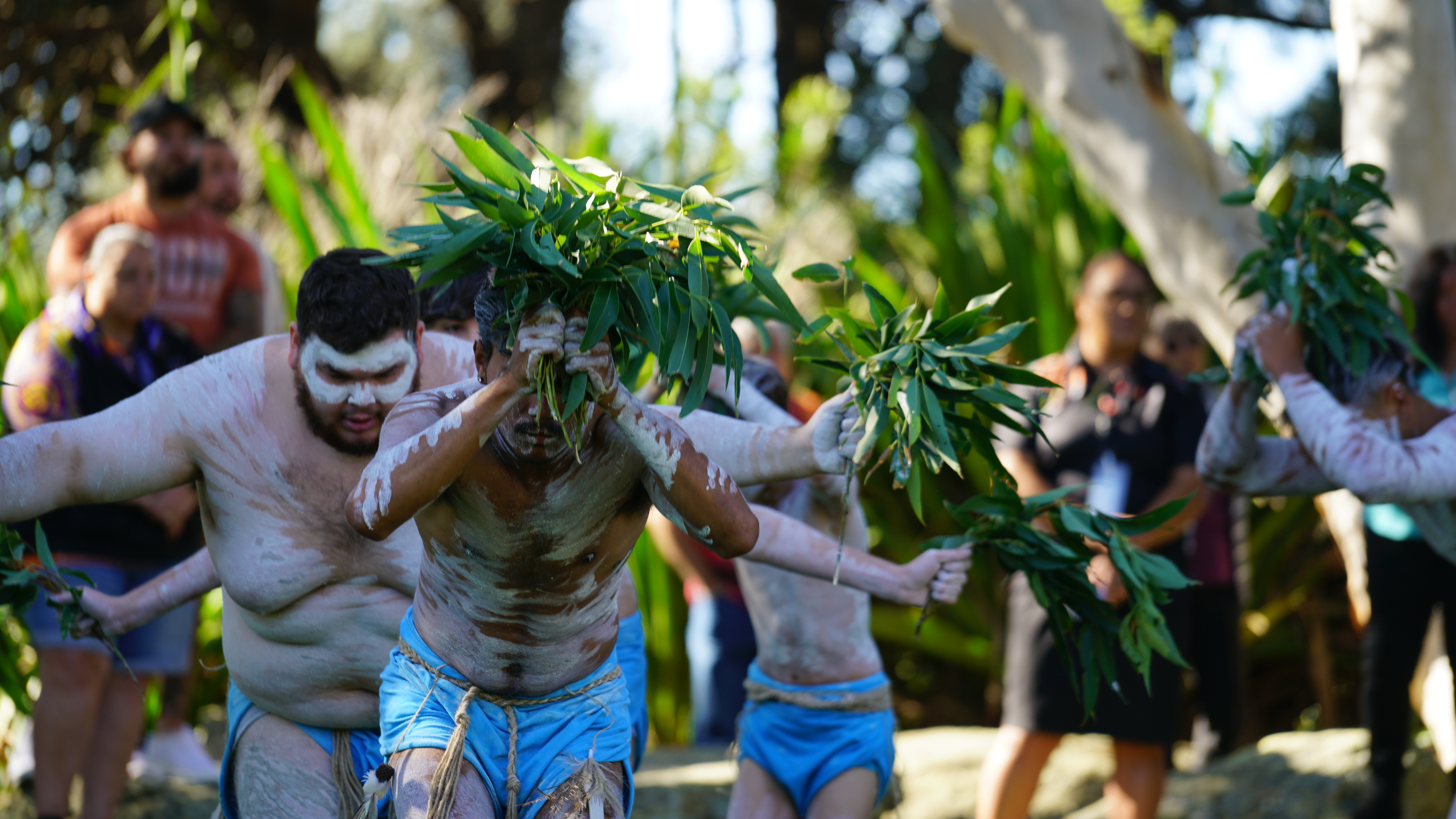
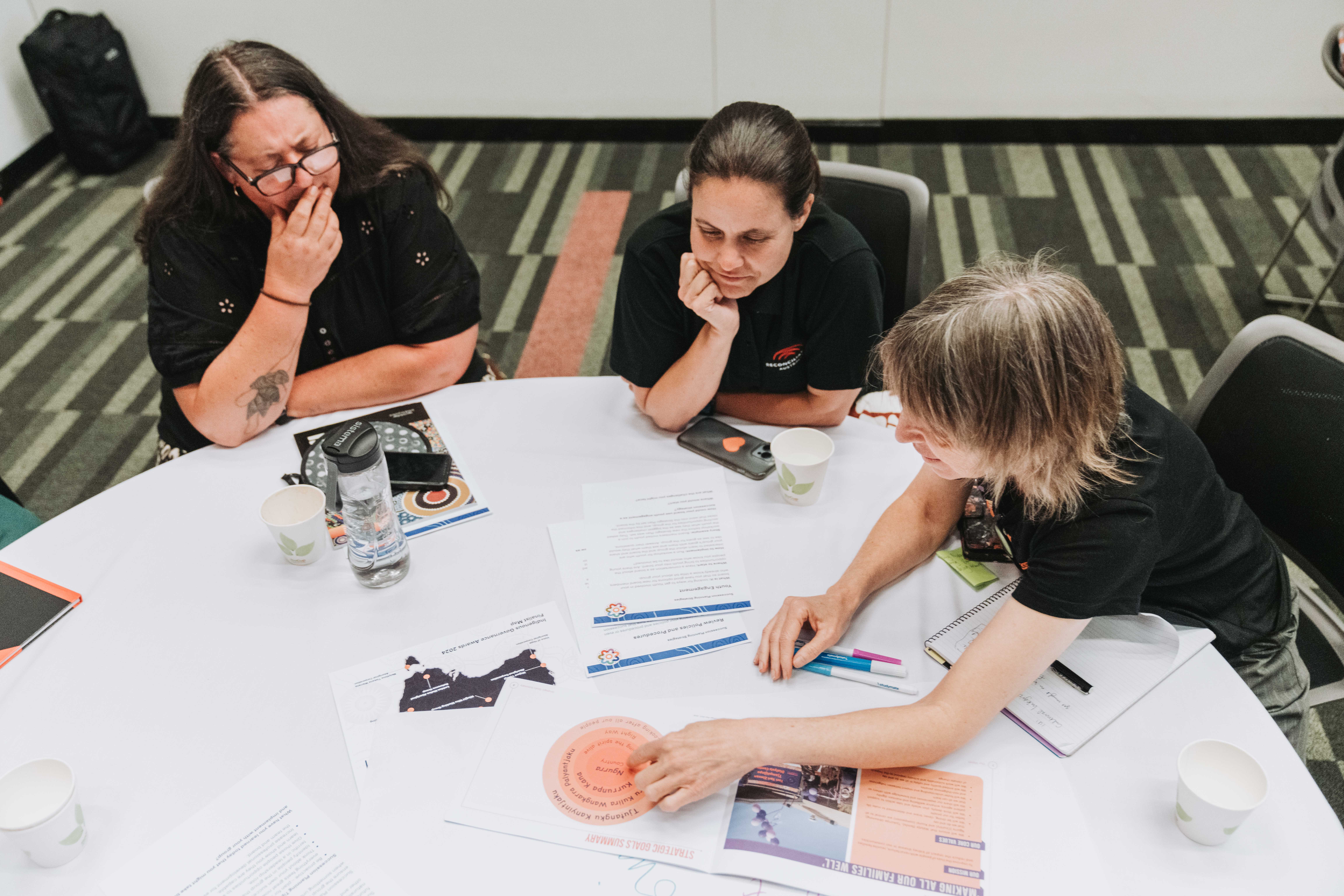
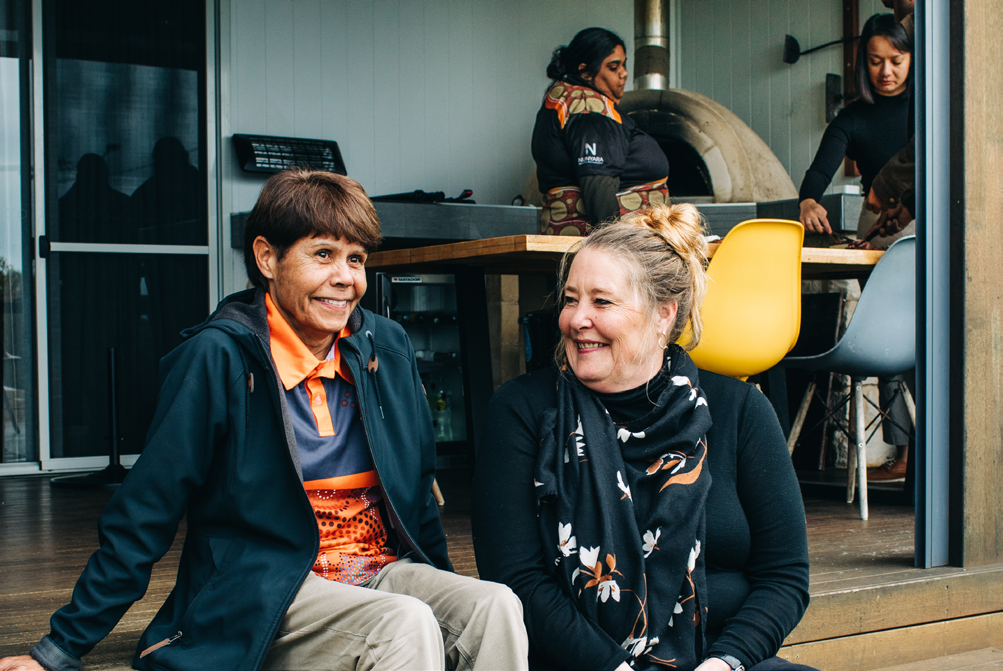


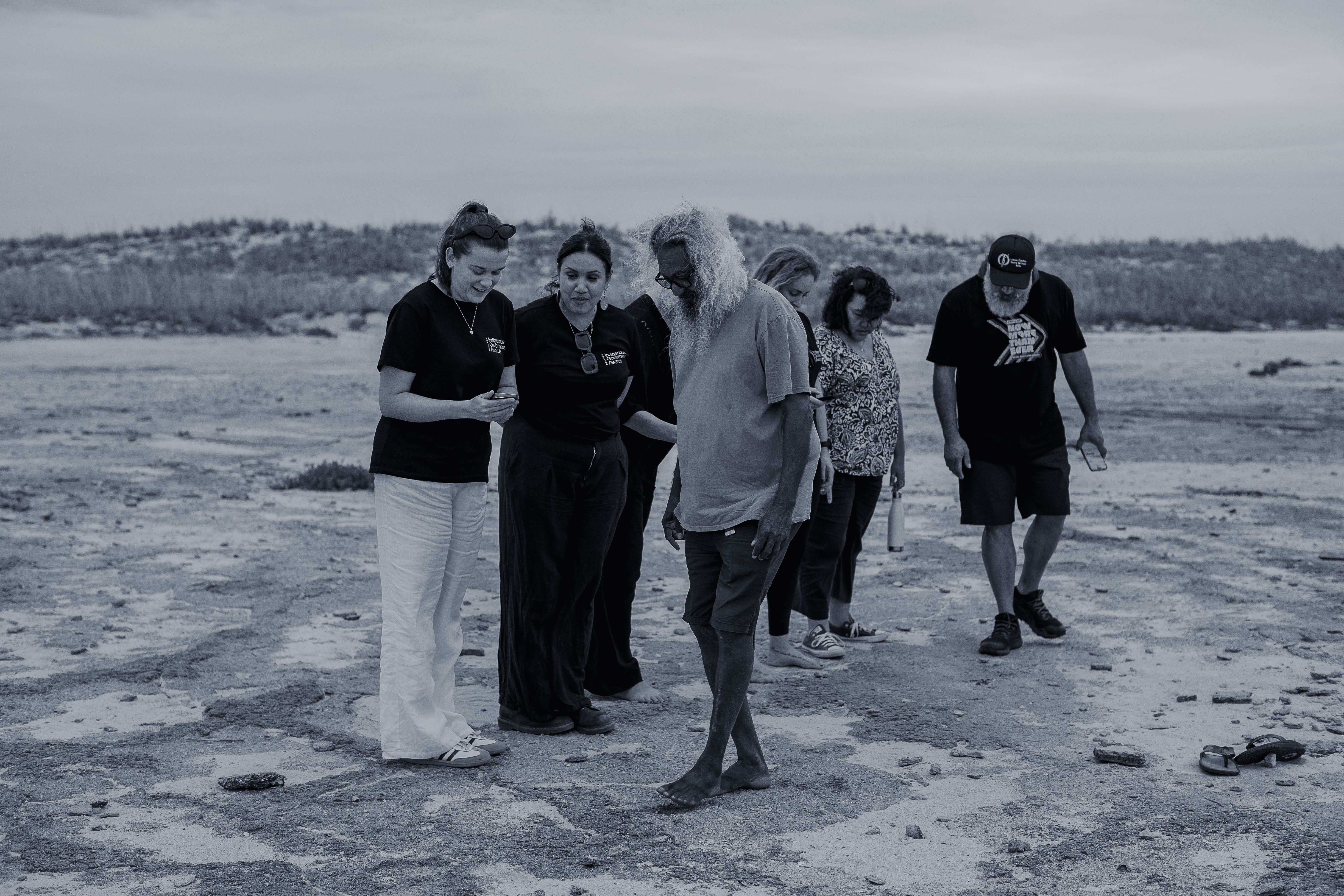



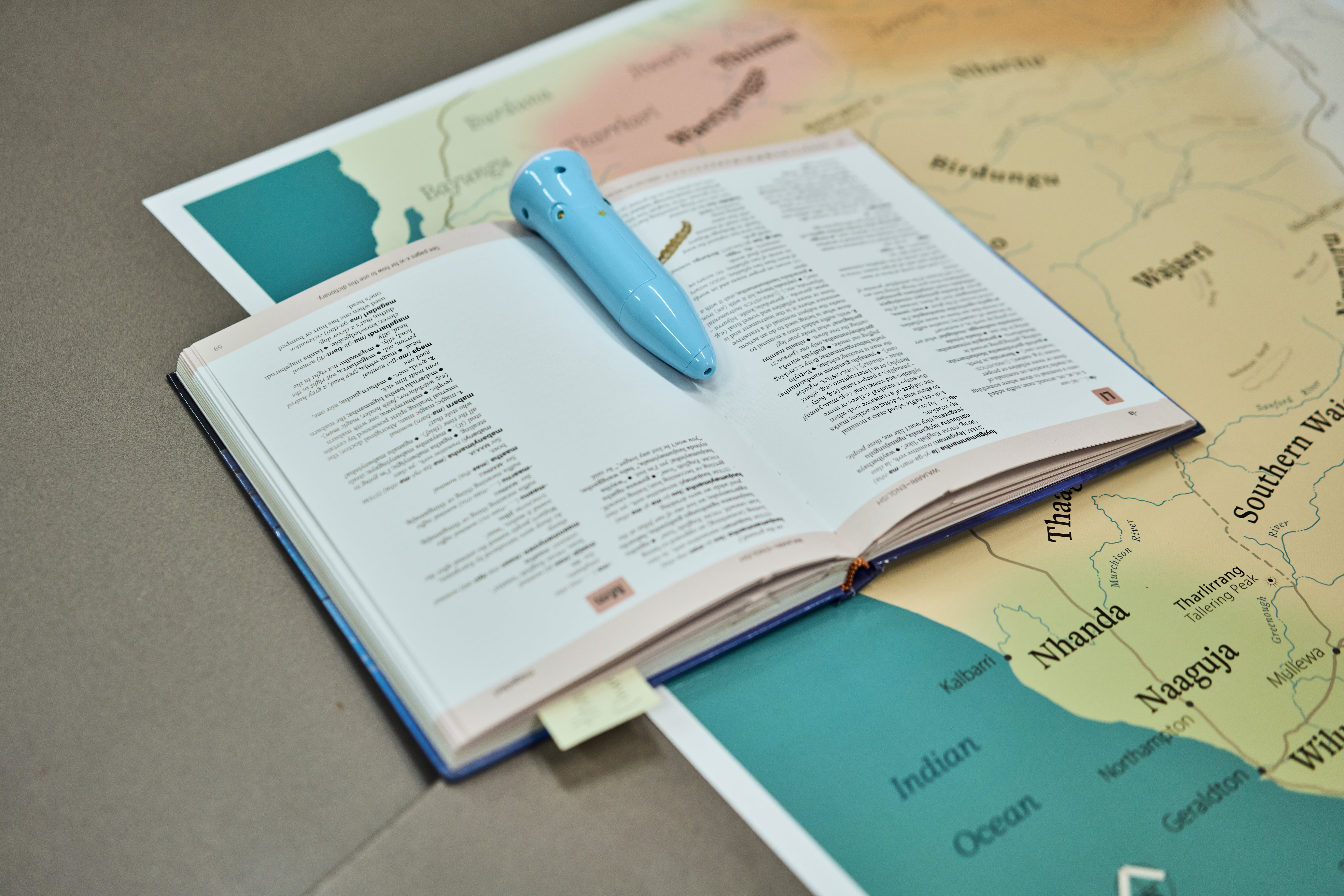

.png)


